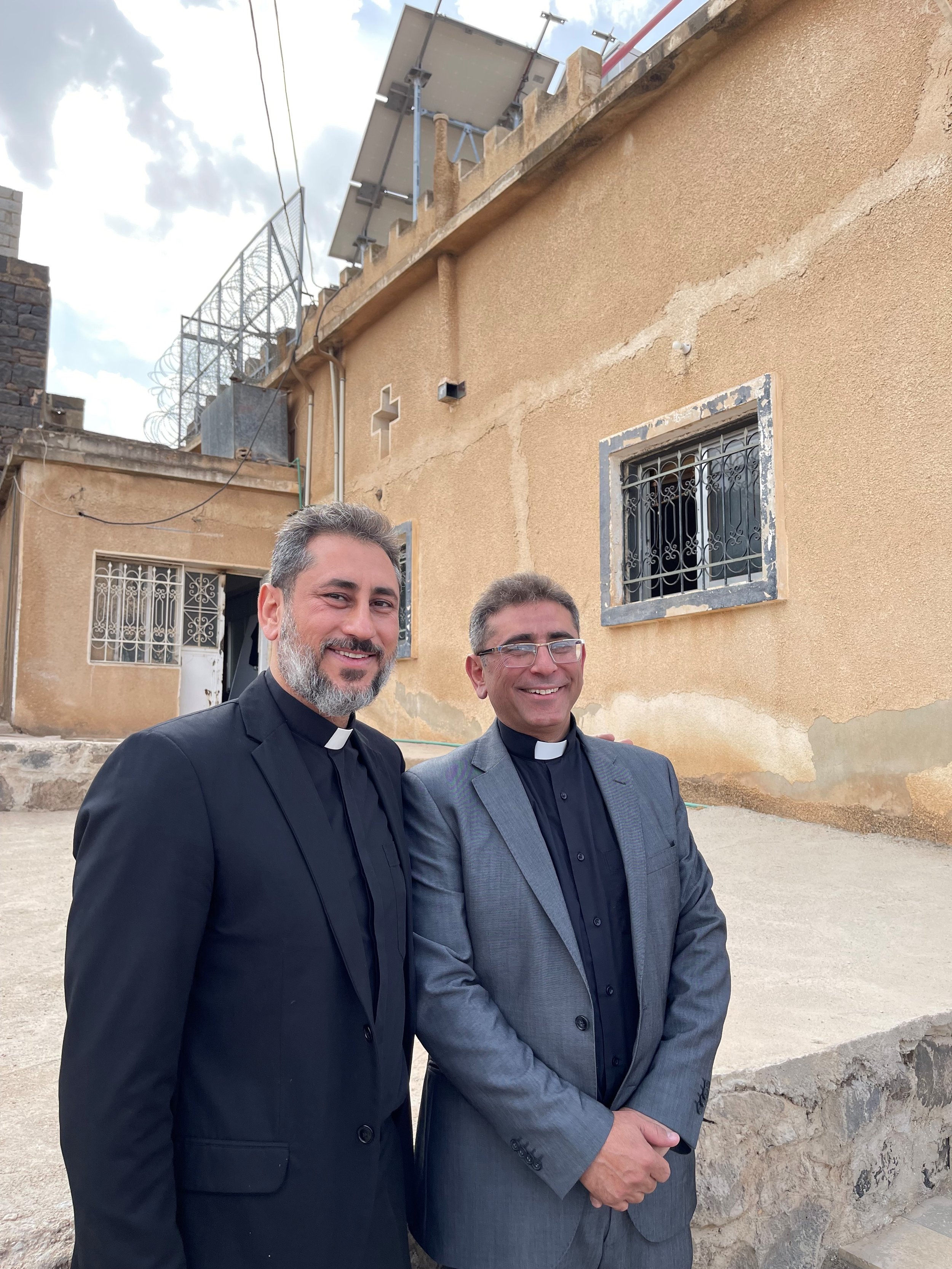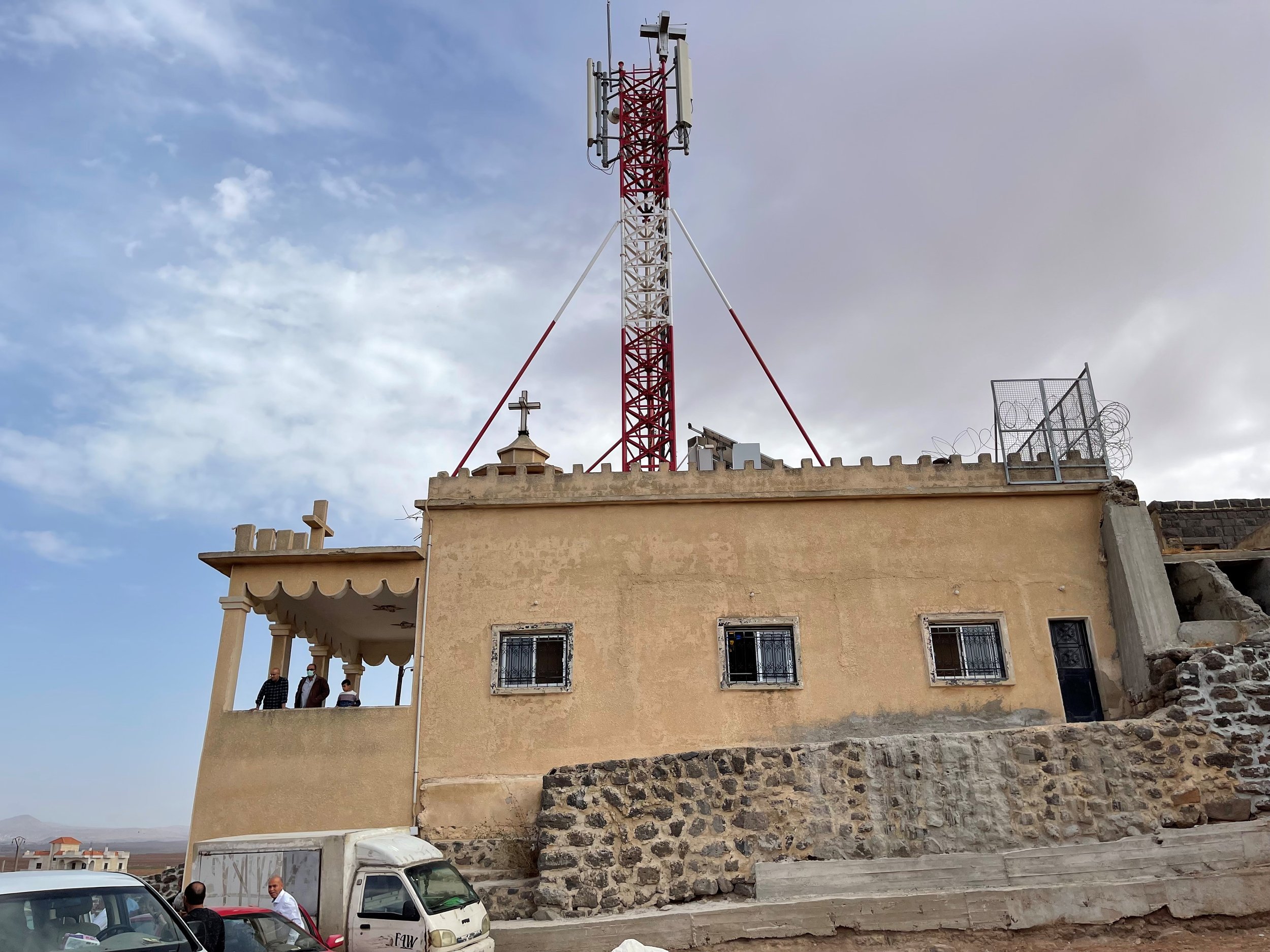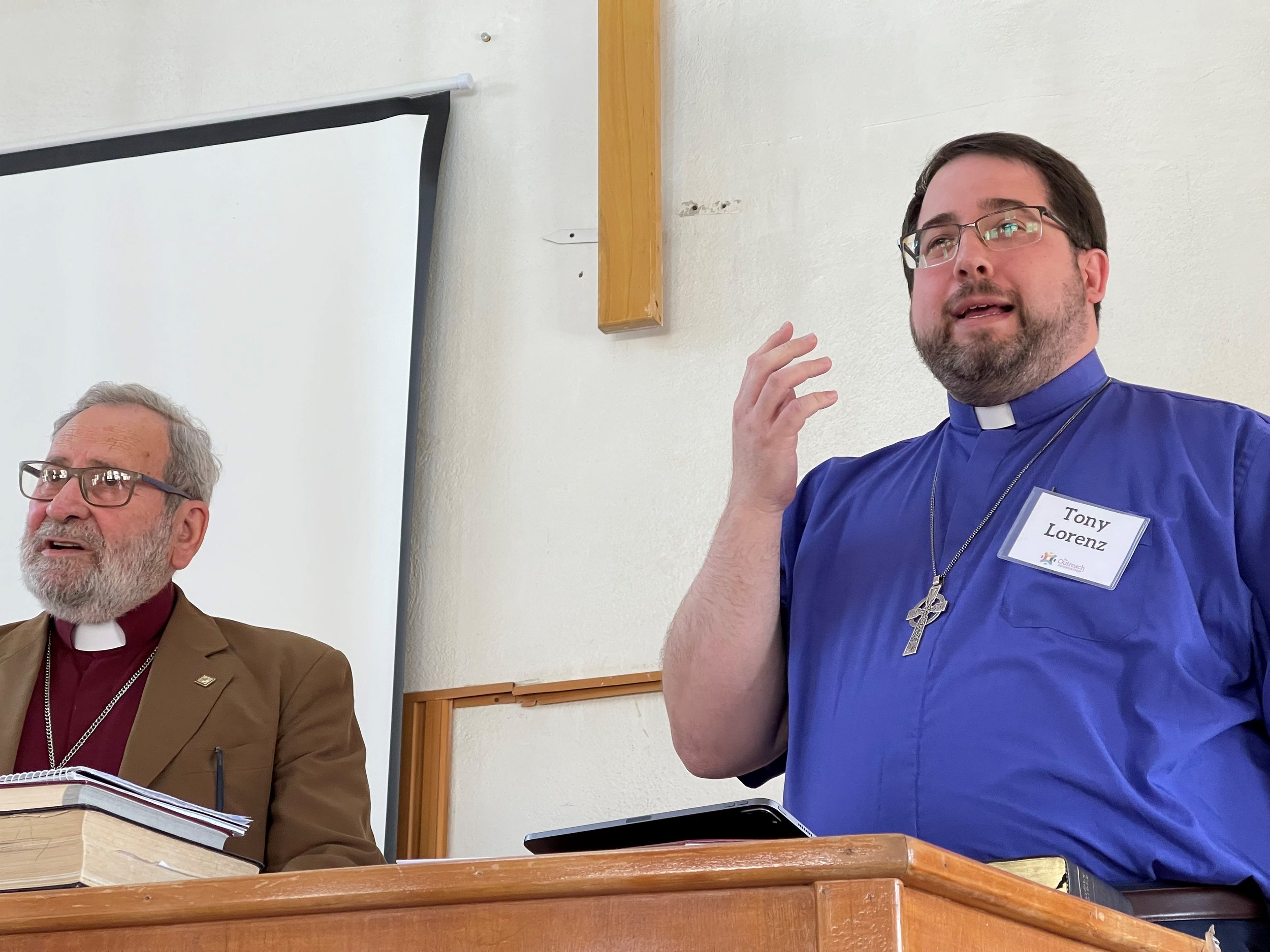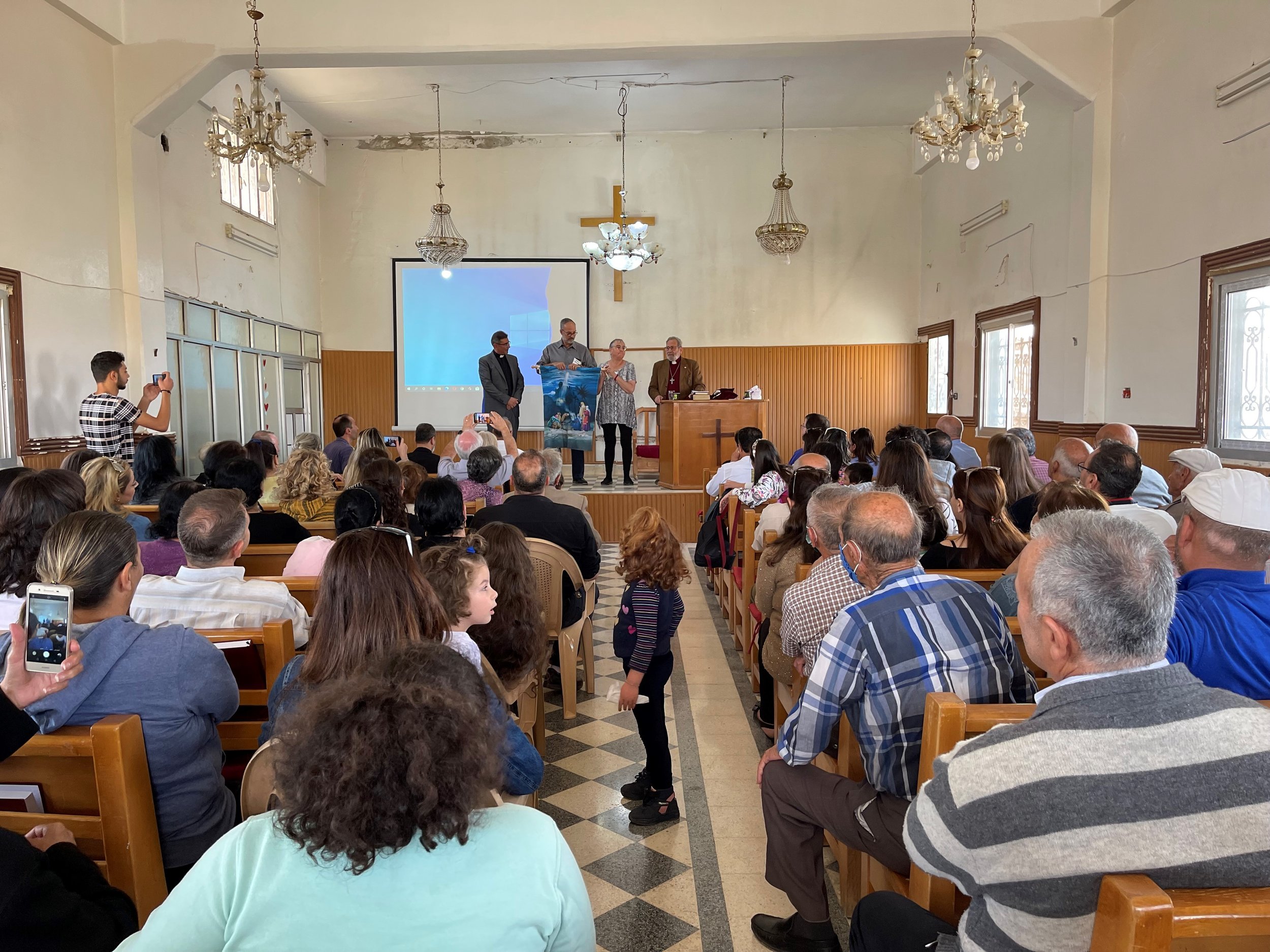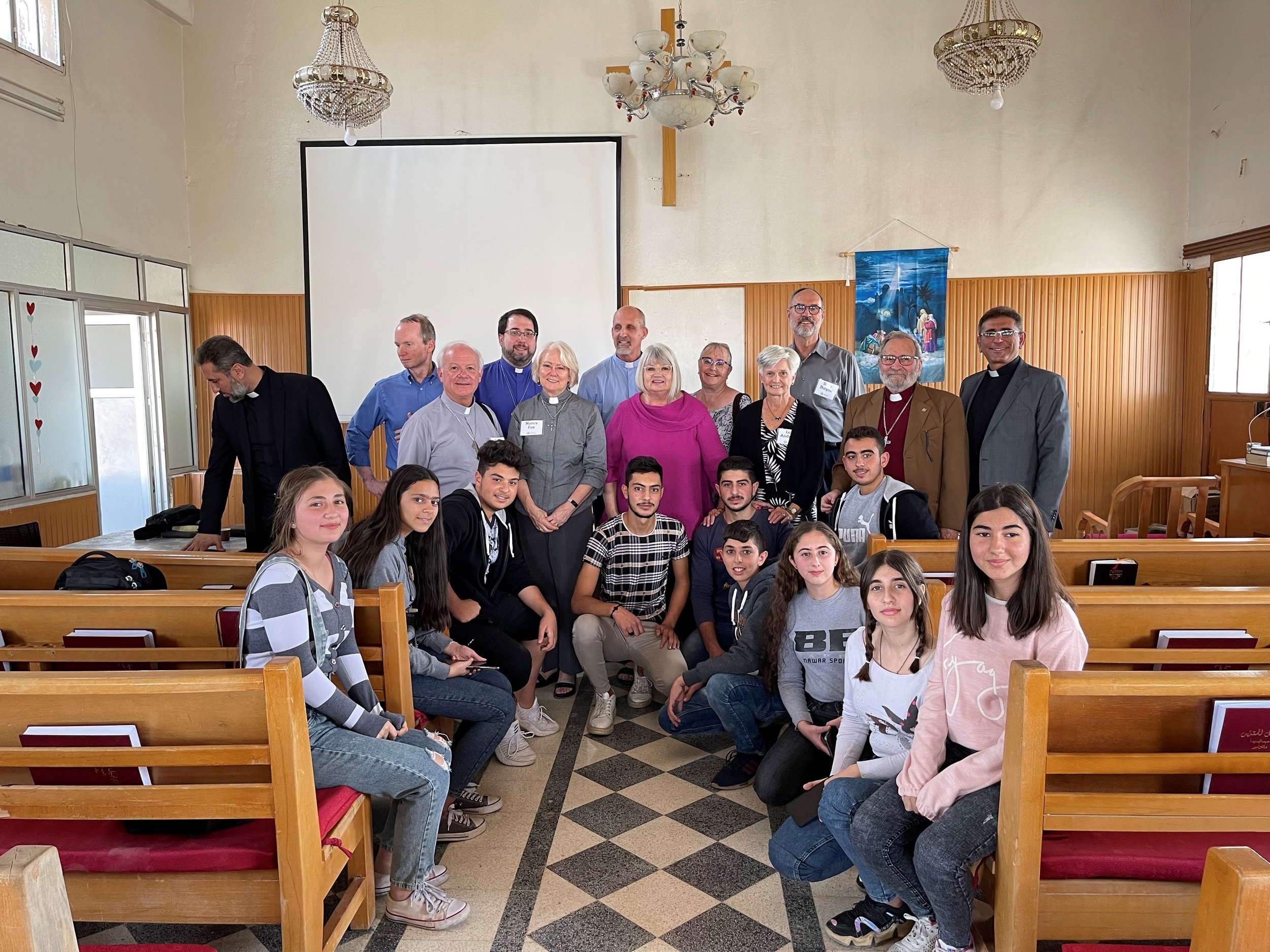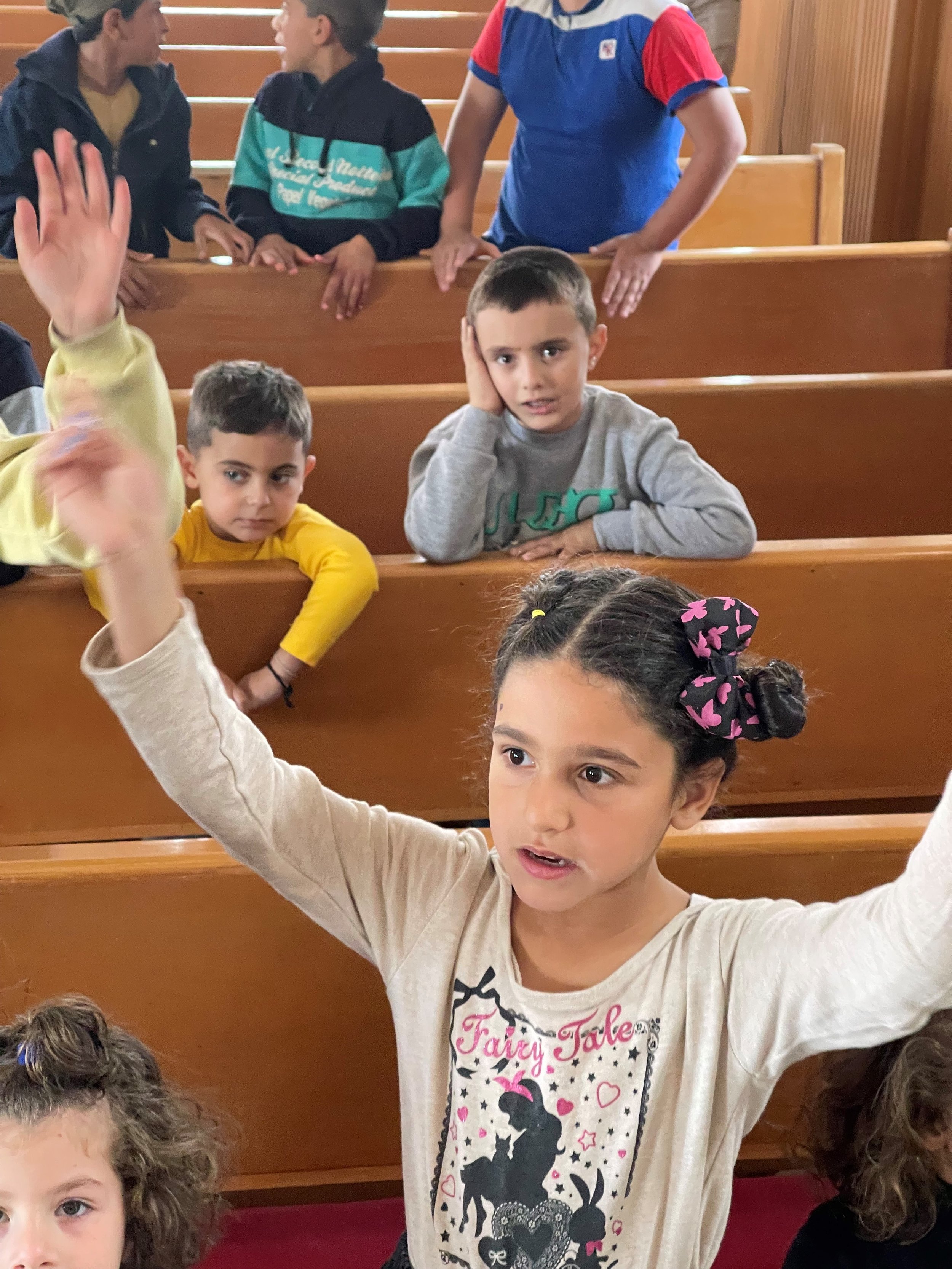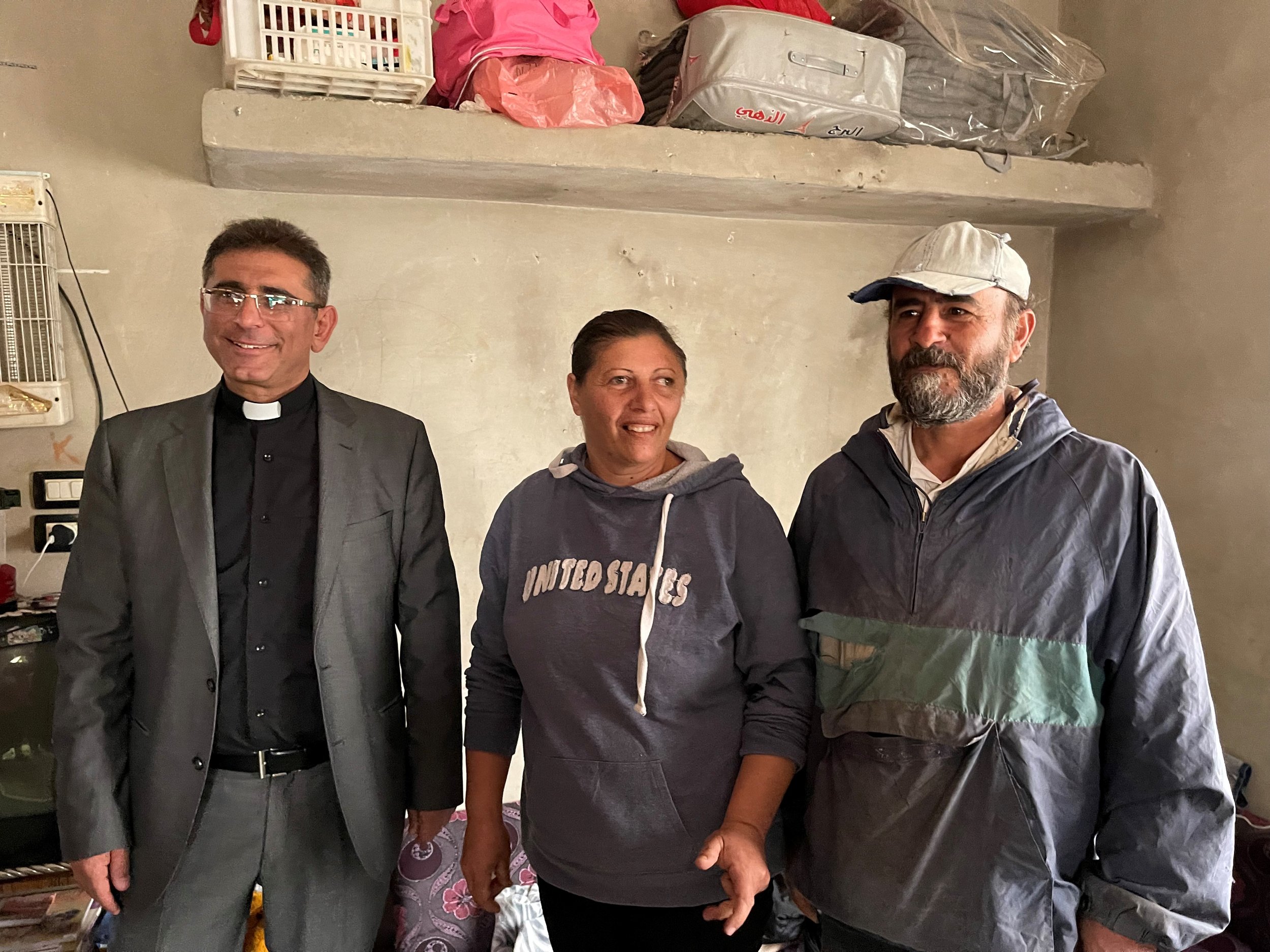Lebanon/Syria #9 - What's in a Name?
“Can anything good come out of Nazareth?” One imagines the gospel writer’s knowing smile as he records Nathaniel’s question. The place one is from inevitably leaves its imprint on the soul and destiny. Occasionally, the stigma of origin is overcome by the power and beauty of the person much as Jesus upended Nazareth’s sketchy reputation.
Today, our little van made its way south from the “Street called Straight” in Damascus to Kharaba. To Arab ears, the little town would likely be mentioned with the same scorn Nathaniel held for Nazareth. The word “Kharaba” means “ruin, destruction.” We were to discover that, though the name fits the place, it is the people whose warm welcome and winsome witness for Christ turn the town of destruction into a home of redemption.
Two of the Synod pastors accompanied us on our journey, Revs. Saleem and Firas Farah, two brothers. Firas pastored the church of Kharaba, where he met his lovely wife Silva, from 2004 to 2009. Today he shepherds the church of Qamishli in the far northeast of Syria. Saleem is the current pastor of the Kharaba Church, located in the southwest. The thought occurred to me that God raised up a special family to embrace the Syrian church with his love from northeast to southwest.
As we’ve come to expect, we were the object of some fanfare and spectacular hospitality. The church overflowed with the honorable citizens of Kharaba and the two Farah brothers led hymns of worship and prayers. Several new attendees were introduced warmly for having come to welcome Kharaba’s honored guests. Marilyn, after introducing her “little team,” eloquently expressed that God’s love can and does bridge the chasms that separate us politically, ethnically, and linguistically. In Kharaba, we are with family!
Rev. Tony Lorenz gave the message on the widow’s two coins (Mark 12:41-44). He reminded his listeners that Jesus saw a poor woman whom everyone else easily overlooked. Her dedication and sacrifice, however, would not pass unremarked by our Lord. Tony assured the little flock of Kharaba that Jesus sees them even in their need and values their devotion. Only later would I realize how perfectly the Holy Spirit had led him in his selection of the text and theme.
After the close of service, coffee and photographs, we were guided to the remains of the first church built on the site. Having served some years as a missionary in the Middle East, I was struck as church members recited the history of their missionary founders in surprising detail. It seems a “Miss Ford” was the first Presbyterian missionary to arrive in Kharaba in 1908. The little room where we stood was her first classroom where one elder’s grandfather learned to read and write English. “Oh, the old people were much more well-read than we are. Everyone in Kharaba came here to learn Arabic and English!” After Miss Ford it was Mr. Brandon and then Mr. Briggs who continued to build the church and educate its people. I could sense both pride and gratitude in the expressions of our new friends.
Next, our van made the short journey to one of the homes in the village. Mazen, a simple farmer who lives from the income of two cows, stood quietly by his wife, Ra’ida, as she shared her story. It was 2014, the war was raging in Syria. Her two girls and one boy were snuggled into the cushions that line the walls of many Middle Eastern homes. When she opened the door, the men in front of her were masked, their guns pointed towards her face. The militants had overrun Kharaba. Some of the village people came to help but being unarmed and outmanned, they ended up on their knees in front of the house while blows rained down from the unwelcome invaders. Ra’ida was able to take her children and leave. She made her way to Sweida, a Druze town of the province.
Thus began Kharaba’s occupation (Read more here). Mazen and Ra’ida would not return for seven years after gifts from The Outreach Foundation and other partners provided funds for needed renovation. Ra’ida shared that recent upheaval had forced her to postpone surgery to remove tumors in her brain. The team paused to pray for our new friend and wondered how much one person can take.
The militants displaced the entire village. Kharaba Church became a church in exile with its parishioners seeking protection in Sweida and Jaramana, just outside Damascus. Many of the homes still lie in ruin. Rimmon showed us his house, just below the church. The roof had been blown off and the house was a pile of rubble. To date, only the homes which sustained minor damage have been repaired.
“Kharaba”—ruins. Yes, the name fits. But through the prayers and worship of the Kharaba Church, redemption has begun. Kharaba’s people are returning. Their beautiful children are back in Sunday School. Pastor Saleem, who shepherded his people through years of exile, continues to lead them in worship and service to the surrounding community.
Tony encouraged this little flock that their lives of dedication, like the widow who gave her two coins, are not forgotten by their Lord. The visit of our team, we hope and pray, will be one expression of the body of Christ, noticing the good people of Kharaba, reminding them that they are seen, that their lives are valued, that they are not forgotten.
by Rev. Dr. Mike Kuhn, International Theological Education Network, Bellingham, Wash.

